- Home
- Patrick Robinson
Nimitz Class (1997) Page 36
Nimitz Class (1997) Read online
Page 36
“Georgy, don’t be ridiculous. Bring to me the four senior members of your crew and let me speak to them. Let me explain the importance of the plan. My objective is that no one gets caught. You beach this thing on some island, we’ll all get caught. If the Americans are onto us, they’ll have everyone extradited to the U.S.A., and put to death for the mass murder of the crew of the Thomas Jefferson.”
“Okay, Ben, I get them. But they not change their minds. They want you on the journey. So do I. You stay.”
“Georgy, before you even consider brandishing a Kalashnikov at me, remember one thing. I was perfectly happy to die for my country on this mission. I still am.”
Bill Baldridge gazed down from the helicopter onto the shining waters of Loch Fyne. To the northeast of the MacLean house he could see the little town of Inveraray. From the air it was dominated by some kind of a castle, or at the very least a fine manor house, with four round towers, surrounded by great lawns and gardens, Inveraray Castle, home to the Dukes of Argyll.
The chopper came clattering down onto Sir Iain’s lawn, and Bill stepped out into a sunlit late afternoon in the west of Scotland. He carried his case to the door, and was greeted by Lady MacLean, who shook his hand warmly and announced that her husband had been held up in Edinburgh and would be back in a couple of hours.
They walked into the hall, where the faithful Angus wished Bill good afternoon, and took his case upstairs. Lady MacLean led the way into the drawing room overlooking the loch and told him they would have tea in a few minutes. They sat on opposite sofas and exchanged formal pleasantries, during which the Scottish admiral’s wife implored him to call her Annie. It took a while before she ventured, “I believe you are planning to take my retired husband on a little holiday to Turkey.”
“No one has told me yet whether he has agreed to come,” said Bill. “I was at the meeting when Admiral Elliott was informed that he could not go. Next thing I knew, they were planning to contact Admiral MacLean. They were supposed to have had a talk while I was on the plane.”
“Well, I believe they did talk. And I also believe they have the matter under consideration, and I think we all know what the outcome will be. Iain will take his place on that journey as the senior officer on board, and end up taking all of the responsibility, just as he has done all of his life.”
“Annie,” said Bill quietly, using her name for the first time, “do you not want him to go?”
“Of course not. I have been a Navy wife for almost the whole of my adult life. I’ve waited for him for years. Sometimes I’ve waited for him to come home for months at a time, when he was out in the Atlantic or in the Barents Sea, risking his life every moment of every day, hundreds of feet below the surface. Right in the Russians’ backyard. The weeks I was by myself, never hearing, always wondering.
“I think of the hours and hours I have spent in this house, in the night, wandering around, always alone, just praying for news of him. Any news. All through the Cold War, all through the Falklands War. Until last year, I finally got him back. And now this. Some kind of suicide mission in a submarine, in waters not much bigger than a wide ditch.”
Bill looked thoughtful. “I suppose, if you talk to him, he might decide not to do it. I have to be there myself, under orders.”
“But, Bill, you are so much younger, and I don’t believe you have a wife, do you?”
“No, ma’am, I do not. But I’ve got a stack of very close relatives back in Kansas, and we’ve just lost my brother Jack, who was really the head of the family. I guess my mother might feel the way you do.”
“Navy wives and mothers have a very lonely and worrying time. And it lasts for years. I suppose I am just a little bit shocked. I had believed it was over.”
“Well, at least no one’s going to shoot at us. We’re just going to make the trip. It’s only about sixteen miles. Won’t take more than about four hours, once we get set up. I don’t think you should worry. We’ll be fine. And if Sir Iain decides to come, we’ll be really fine. Because he believes it can be done. And he’s the best.”
“Oh, he will definitely be on that submarine,” said Lady MacLean. “Whatever I think or say. He’ll actually enjoy it. Because it will take him back to his happiest, most exciting days in command. Doing the things he believed only he could do.”
“A lot of people seem to think he was the best submarine commander the Navy ever had. Maybe this is part of his destiny. Do you believe in destiny, Annie?”
“Yes, Bill. After all of these years, I’m afraid that I do.”
Angus brought in the tea, and when he had gone, Baldridge and Lady MacLean sat and sipped in silence for a while. Finally Bill said, “How long does it take to drive to Edinburgh from here?”
“About an hour and a half to Glasgow, then another hour to Edinburgh if the traffic’s reasonable. It’s less than fifty miles between the two cities, straight along the M8.”
“Still, that’s five hours behind the wheel,” said Bill. “Guess you wouldn’t want to make it every day.”
“Oh no. It’s hardly commuting distance. Really it’s right across this narrow part of Scotland, west to east. Still, it’s not too bad for him today. He’s got Laura driving him.”
Bill looked up sharply, smiling to disguise the heartbeat of excitement he felt. They had not spoken since they parted on the lawn of this house three weeks previously.
He tried to slow the conversation down, and very nearly succeeded. “Oh, I had no idea I’d be meeting one of my chief informants again,” he said, grinning.
“And, I believe, one of your fellow opera enthusiasts,” replied Lady MacLean. But she betrayed no sense of knowing, nor sly insight, when she added, “My daughter liked you very much.”
“Does she have the little girls here—the ones I never met?”
“No, Bill. They’ve gone off with their father for a few days, up to his brother’s grouse-moor. The season starts next week, and everyone gets frightfully busy in the days leading up to the first shoot. Laura hates the ritual of it.”
“So she comes over here for a few days on this spectacular loch,” said Bill.
“Yes. Actually we’ve seen quite a bit of her just lately. She’s never really been content living in Edinburgh. And her husband’s charming. Of course she’s never got over that frightful Adnam boy. She told me you knew all about that.”
“Yes. She was amazingly helpful about him. If we get him, she’ll probably never know how important a part she played.”
“Do you really think he blew up your aircraft carrier?”
“When I was last here I thought he might have. Right now, I know he did.”
“Can I know how?”
“Not in any great detail, I’m afraid,” said the lieutenant commander. “But he was not Israeli. We think he was Iranian. But he could have been Libyan, or Syrian, or an Iraqi. His identity has baffled even the Mossad.”
“Iain thinks he could have been Iranian. Especially after Laura told him about that strange visit they made to the mosque in Cairo.”
Just then the telephone rang. Lady MacLean hurried away to answer it across the room. “Yes…yes…he is here…I’ll get him.” She beckoned to Bill and told him to take the call in the admiral’s study across the hall. “It’s probably top-secret,” she said, smiling. “It’s my husband’s old office.”
Bill found Lieutenant Waites on the line. “Hello, sir. Hold on a moment. I have Captain Greenwood for you.”
“Good afternoon, Bill.” The deep, somber voice of FOSM’s Chief of Staff was unmistakable. “Just a short progress report. First, we’ve been cleared politically. The mission is to proceed immediately. The boss ran Admiral MacLean to ground at some office in Edinburgh and Sir Iain’s coming. That’s all decided.
“The submarine we want, Unseen, is in Barrow, in a state of near-readiness for the sale to Brazil. We’ve canceled that for the moment, and the admiral has ordered a crew to be brought in. That will take a week. Then we will have a two-week w
orkup period to familiarize everyone with the SSK. Barring accidents, Unseen will clear Barrow on August 25, and arrive in the area on about September 7. It’s 3,700 miles, and we’ll run at around 12 knots all the way.”
“How about the landowners?” asked Bill, avoiding naming the Turks on the telephone. “Are we spilling the beans?”
“No, we’re not. I believe the admiral is going to talk to their boss tonight in very guarded terms. He has already spoken to Admiral Dunsmore at the Pentagon, and, so far as I can tell, you are the only American on board. Admiral Elliott is naming the captain tomorrow. I expect it to be the former Upholder XO, Jeremy Shaw. He and his team have been training the Brazilians, so he’s well up to the job.”
“Sounds good to me.”
“Oh yes, two other things. Tomorrow we are sending the chopper over to take you and Sir Iain down to Barrow to get a look at the boat. And will you expect a call in a half hour or so from Admiral Morgan?”
“Okay, sir. I’ll be here, enjoying my little vacation in Scotland.”
“Not for long, I hear. Admiral Morgan said he was sending you to Russia on Thursday. You have to pick up a special visa at the embassy in London before you go.”
“Jesus,” said Bill. “There’s no peace, right?”
“Not if you want to catch your man. No, Bill, there’s not.”
A half hour later the lieutenant commander had just lowered himself into the steaming spare-room bathtub, along with the other half of the jar of blue crystals, when he heard a tap on the door.
“Sir, there’s a call for you. I’ve put it through to the phone by your bed.”
“Thanks, Angus, old buddy,” he said. “Be right there.”
Cursing the exquisite timing of Arnold Morgan, he wrapped himself in a towel, and picked up the telephone, warning immediately, “Admiral, this is not a secure line.”
“Okay, Bill. Gottit. I hear we’re all set. I spoke to Scott Dunsmore this morning and he says the President is definite. The minute he hears you’re through the slot, he’ll authorize a massive search for the Kilo. Meantime, I want you to get out to Sevastopol and spend a little time with Admiral Rankov.
“He’s as anxious as we are to locate his employees. But he’ll show you around, so you can get a feel for the area, and the families of the crew. Sorry to turn you into some kind of detective, but everyone is anxious not to expand the circle of people who actually know about this. So I guess you’re doing nearly everything.”
“What about my travel arrangements to Russia?”
“Admiral Elliott’s office is taking care of it all. You need to pick up tickets, visa, and cash in London before you go. I thought Thursday or Friday, after you’ve taken a look at the submarine. Anyway call the admiral’s Flag Lieutenant in Northwood. They got it covered.”
“Okay, Admiral. Will I come back to the States after Sevastopol?”
“I guess so. You’ll be through with Rankov by around August 13. You might just want to meet the guys working up the submarine after that. Then there may be something else over there for you.
“If not, you might as well come back, and we’ll go on playing detectives together. Anyway, you’ll be ready to go aboard on September 8, I understand with Admiral MacLean.”
“Guess so, sir.”
“Good. See you, Bill.” The line went dead.
Back in the hot, scented water, Bill Baldridge reviewed the situation. The fact was, the “search-and-destroy” operation was on hold pending the successful transit of the Bosporus. Thereafter the President would be relentless in the pursuit of Adnam. It was curious how certain he was that the Israeli officer had made that journey. Even more curious that Ben’s Teacher was now trying to follow him.
Downstairs he was just walking across the hall when he heard the tires of the Range Rover on the drive. He opened the front door and saw the admiral step out of the car, pursued by the omnipresent Fergus, Muffin, and Samson. God knows what those Labradors had been doing in Edinburgh.
He noticed the spring in the step of the admiral as he walked briskly toward him, smiling in greeting. He noticed too, the gentle wave of the driver through the windshield, as she gathered up her jacket and bag. “Hello, Bill. Delighted you’re here. Understand we’re going on a little jaunt together?”
Bill shook hands with the admiral, fought off the dogs as they leapt all over him. “Coupla days sailing off Istanbul, paid for by Uncle Sam, shouldn’t be so bad, sir?”
“Certainly not. I’m rather looking forward to it, tell you the truth.”
By now Laura was out of the car and walking over to join them. “My God, she’s beautiful,” thought Bill. And he grinned rakishly as she held out her hand. “Hello,” she said. “I didn’t expect to see my inquisitor so soon.”
Lady MacLean emerged through the front door. “Hello, darling,” she said. “Good journey?”
“Yes, fine, except when Daddy loosed off the dogs in the forest about an hour from here. That ridiculous Fergus wouldn’t come back. Found a rabbit or something. Cost us twenty minutes. I don’t know why we had to take them in the first place. They were sitting outside a lawyer’s office for two hours, and in the car for five, with only two breaks.”
“You know how your father is with those dogs. They go everywhere with him. Except London. And they behave like lunatics most of the time.”
In the distance Bill could see them right now. A boisterous black trio of running, barking, rolling, pushing energy, two of them having already rushed into the loch. “Don’t let those wet Labradors into the house,” Lady MacLean called out to her husband.
Laura took Bill by the arm. “Come on, Inquisitor, let’s have a drink. It’s almost half past seven.”
It was a good start to a long evening. Angus had cooked yet another Tay salmon, and the wines were identical. Admiral MacLean expounded more on the Bosporus and how he intended to guide Unseen safely through. Bill thought this was strictly for the benefit of his wife. It was eleven-thirty by the time dinner ended and the group retired to bed. The admiral and Bill were being collected at eight-thirty in the morning.
Strapped by the rigid propriety of their surroundings, the lieutenant commander and the admiral’s daughter retired to their separate rooms, forty feet and a thousand miles apart on the second floor. Bill himself wondered if he would ever see her again. In two days he would be gone, and he might not return. He could never telephone her here, and he sure as hell was not anxious to call her husband’s house in Edinburgh.
He knew he would have to wait, to find out if she would call him in the States. And where could such a course of action take her? Nowhere, except to Kansas. And he hardly knew her. Christ, he didn’t even know if they had any au pairs in Kansas.
The Royal Navy chopper arrived precisely on time. The lieutenant commander and the admiral strapped themselves in for the one-hour ride to the sprawling home of Vickers Shipbuilding and Engineering Ltd., the British corporation which had constructed all of the Royal Navy’s nuclear boats, from Polaris to Trident.
Most shipyards in northern Europe were situated in bleak, windswept areas, and this was no exception. The Vickers yard sat on the southernmost peninsula of Cumbria, on the northwest corner of Morecombe Bay, opposite the coast of Lancashire. Technically, it juts out into the Irish Sea, unprotected from the westerly rain and gales except by its own enormous buildings. Across the sound lay the flat, eight-mile-long sand spit of Walney Island, which contributed approximately nothing in the way of a weather lee.
A small welcoming party of Naval officers greeted the admiral and his guest, and almost immediately they were driven down to the Buccleuch Dock, home of the unwanted Upholders. The single-shafted Unseen was secured alongside. She was a jet-black 2,500-tonner, over 230 feet long, with an 8,000-mile range and a top underwater speed of 20 knots. A big Paxman diesel-engine/ generator combination powered up the giant submarine battery, which in turn powered a 6,500 hp GEC motor. She was scheduled to carry a complement of McDonnell Douglas sub
-harpoon guided missiles, and twenty-one torpedoes, Marconi Spearfish. Unseen, silent at under five knots, was lethal to any enemy. The crew knew that the British Government was in the process of almost giving her away. They also knew that the Royal Navy was appalled. Just as appalled as back in 1981 when politicians elected to sell the only two operational aircraft carriers the Navy owned, which actually caused the Falklands War, since the Argentineans then believed Great Britain could not defend the islands against a major attack. They were wrong, but only by six months. The carriers were still in RN service.
Bill Baldridge could feel the resentment in the Royal Navy toward the government as he walked alongside the unused submarine. No one wanted her to be sold and by now all the senior officers knew that her potential savior was this visiting American lieutenant commander. Bill was being treated like a hero.
They boarded Unseen, and while Lieutenant Commander Baldridge was given a tour of the weapons area, Admiral MacLean spent two hours in the sonar room reviewing the Thompson Sintra Type systems and the passive ranging Paramax 2041. After lunch they took a tour of the yard, crossing the Michaelson Bridge. The bridge separated the Buccleuch and Devonshire Docks, which could be raised to allow ships to pass between the two. Beyond Devonshire stood the gigantic Trident building sheds. It was a cloudy day now, gray and gloomy along the water. To Iain MacLean it had always been a complete mystery why these stark backwater docks of the defense industry should each have been named after one of Britain’s greatest land owning dukes.

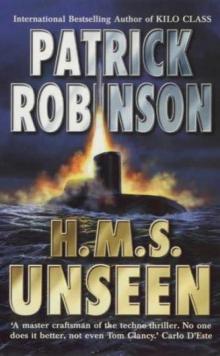 H.M.S. Unseen am-3
H.M.S. Unseen am-3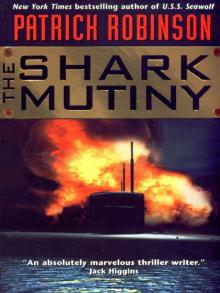 The Shark Mutiny (2001)
The Shark Mutiny (2001)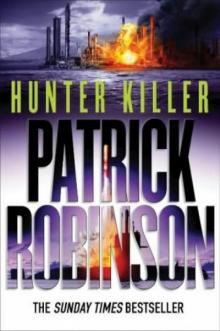 Hunter Killer am-8
Hunter Killer am-8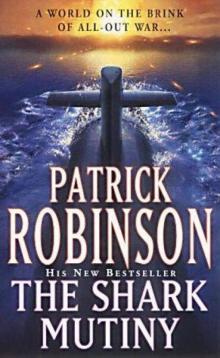 The Shark Mutiny am-5
The Shark Mutiny am-5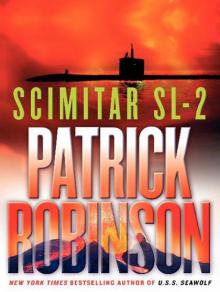 Scimitar SL-2
Scimitar SL-2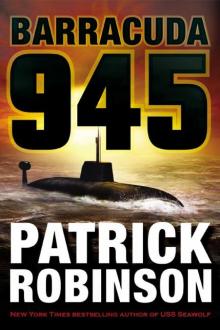 Barracuda 945 am-6
Barracuda 945 am-6 Hunter Killer
Hunter Killer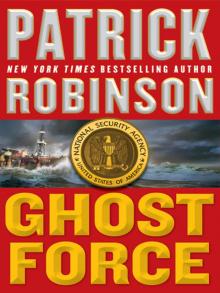 Ghost Force
Ghost Force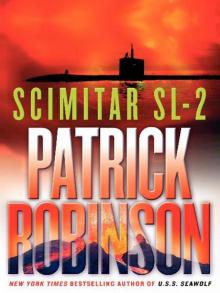 Scimitar SL-2 (2004)
Scimitar SL-2 (2004)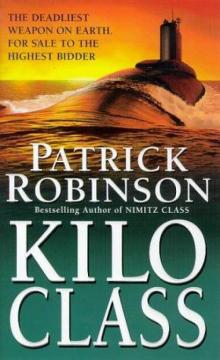 Kilo Class am-2
Kilo Class am-2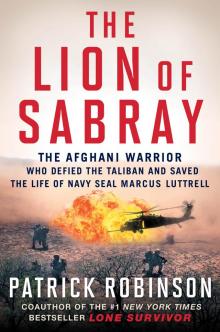 The Lion of Sabray
The Lion of Sabray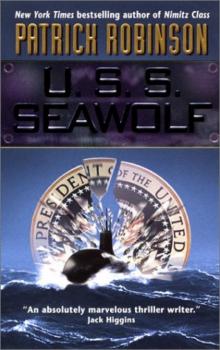 U.S.S. Seawolf am-4
U.S.S. Seawolf am-4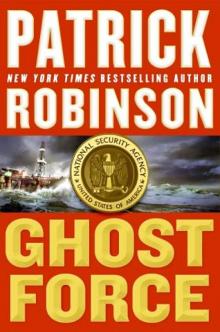 Ghost Force am-9
Ghost Force am-9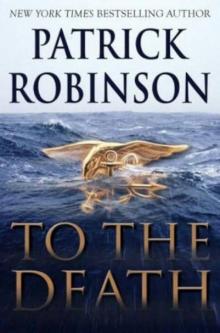 To the Death am-10
To the Death am-10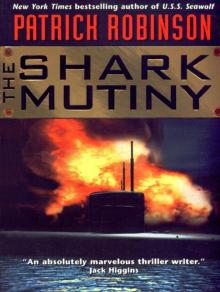 The Shark Mutiny
The Shark Mutiny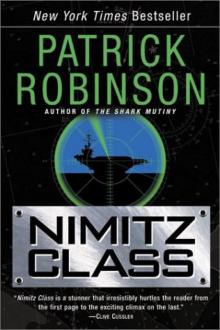 Nimitz Class am-1
Nimitz Class am-1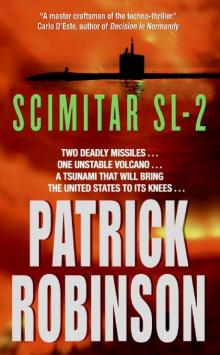 Scimitar SL-2 am-7
Scimitar SL-2 am-7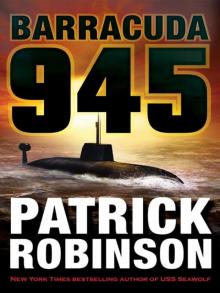 Barracuda 945
Barracuda 945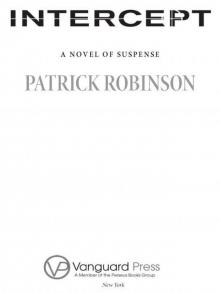 Intercept
Intercept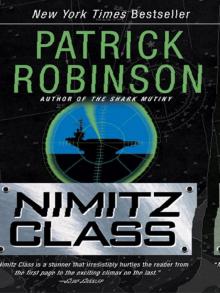 Nimitz Class (1997)
Nimitz Class (1997)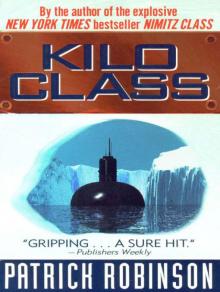 Kilo Class
Kilo Class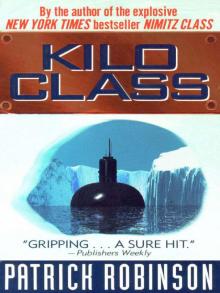 Kilo Class (1998)
Kilo Class (1998) Diamondhead
Diamondhead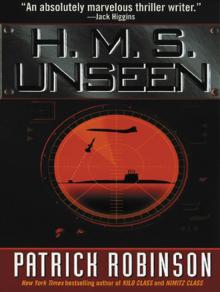 H.M.S. Unseen
H.M.S. Unseen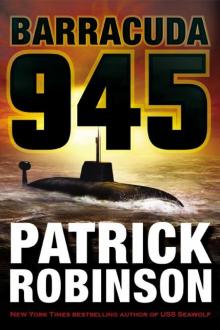 Barracuda 945 (2003)
Barracuda 945 (2003)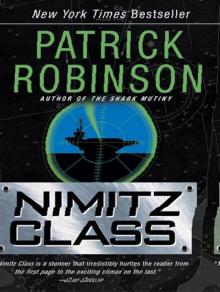 Nimitz Class
Nimitz Class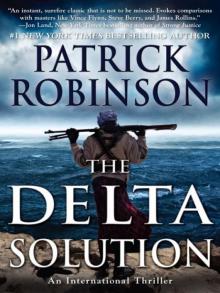 The Delta Solution
The Delta Solution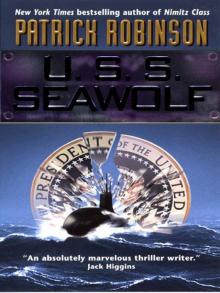 U.S.S. Seawolf
U.S.S. Seawolf